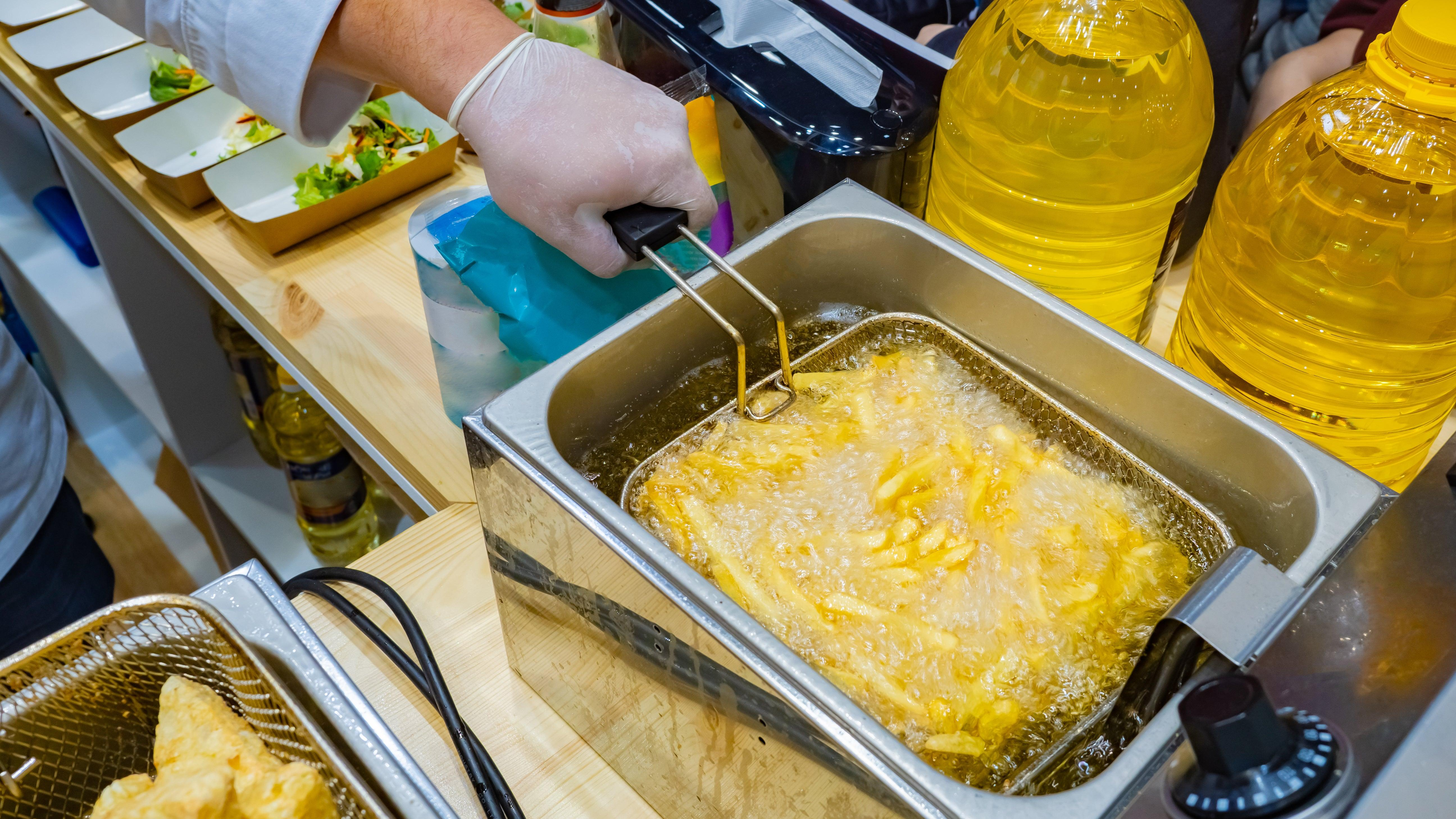Why Cooking Oil Thefts Are On The Rise
Restaurants are sitting on a goldmine. What makes used oil so valuable?
Small-town crime can reveal a lot about the restaurant industry. Take for instance the recent news out of East Lyme, Connecticut, reported by Eyewitness News 3, that a man was arrested for stealing cooking oil from several restaurants in town. Over the past year, there have been reports of the same thing happening in places like Woodstock, New York; Palm Coast, Florida; and Wayne, New Jersey.
The issue has been so rampant that it prompted New York's East Hampton Star to publish the headline, "Is Used Cooking Oil the 'New Copper'?" And in November, the president of Buffalo Biodiesel told KTLA that the increase in thefts was costing the business millions of dollars. What do all these thieves want with a restaurant's used oil?
Why used cooking oil is so valuable
This isn't a new crime; it last hit its peak in 2017. Back then, Food & Wine reported that around $75 million worth of used grease was stolen annually. Why? Because that oil can be repurposed as biodiesel. In fact, 1.4 billion pounds of used cooking oil was turned into alternative fuel in 2016.
There are legitimate companies, like Buffalo Biodiesel, that restaurants create contracts with to come pick up their old grease as an efficient way to reuse the waste. But as gas prices rise, more cooking grease is getting snatched before the companies arrive to collect it.
There's an underground market for this oil, and thieves stand to make a pretty penny—according to Insider, the price of used oil in 2021 was 66 cents a pound, and vegetable oil weighs roughly 7.5 pounds a gallon. To put that into perspective, the thieves apprehended in Palm Coast, Florida last October were caught with a 1,000-gallon oil drum to siphon cooking oil into, amounting to roughly $5,000 for one haul.
And since cooking oil is used at restaurants daily, there's always a supply ready for the taking. Upticks in such thefts cause restaurants to lock down the barrels and dumpsters from which companies collect the used oil. The restaurants themselves receive payment from companies like Buffalo Biodiesel for their grease and, through subsidies, can make about $6 per gallon, according to The Morning Call.
If you're a home cook and frequent fryer wondering if you can make a buck from your waste, you're better off finding a recycling center near you that will take your used oil to repurpose as fuel. The amount of oil you'd need to collect to earn any real money off of it would be difficult to store without restaurant-grade equipment, and you'll probably just end up in the red, like Homer Simpson.
